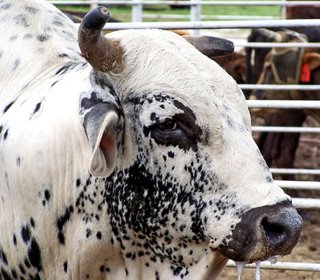
The average person hasn't heard much about Type Two Bipolar Disorder, but there are some significant differences between the two types.
While Type I has a manic phase characterized by extreme behavior, Type II has what is called hypomania, hypo meaning "low." The minimum requirement for diagnosis is four days.
Characteristics
01-Can exhibit any of the behaviors of Type I, but at a "hypo" level.
02-Because of this, it can go undiagnosed by medical professionals and unnoticed by associates of the patient.
03-Sometimes, due to the stepped-up energy, it is seen as a good thing.
04-Irritability
05-Animated speech
06-Increased self-confidence
07-Goal setting, list-making and multiple projects which are often uncompleted
08-Focused on doing research of some type
09-Rapid-fire ideas (many of which are good)
10-Hypomanic episodes can be quite enjoyable to the person experiencing them, therefore there is a tendency to refuse medication or do anything that might stop the episode.
It is important to note that hypomania/Type II disorder typically has a much more severe depressive phase. Persons with Type II Bipolar Disorder are more likely to commit suicide than people with Type I disorder.
During my teen and early adult years, I manifested the manic behaviors of Type I disorder. I required little sleep (sometimes 3 hours), was angry and violent, hypersexual, extremely energetic, and I had difficulty focusing attention and was easily distracted. During that phase of my life I was addicted to alcohol, unable to concentrate on school work, infrequently completed projects, job hopped and very often engaged in risk-taking behaviors.
After age 27 though, my manic phase began to change. I attribute this completely to my becoming a Christian. This new life-style, especially cessation of drinking alcohol, gradually changed the chemistry of my brain. A psychiatrist once told me that this metamorphosis was rare, but that I had obviously undergone a change. In fact, this same psychiatrist said that she believed that I would have been dead by now, if I had not become a Christian. I think she's probably right.
My hypomanic phase is so subtle that it is usually indiscernible by anyone other than my wife. She knows me best. To others I might just seem to be in an extremely good mood and energetic. This subtlety is what makes hypomania difficult to diagnose by any medical professional who doesn't have enough experience with mood disorders.
Many doctors treat only the depression presented and that creates some long-term problems for people who have Bipolar Disorder. If only the depression is treated (with an antidepressant), and no mood-stabilizing medication is added to the regimen, then each depressive phase will be worse than the one preceding. This is what happened to me, and I will discuss this more in my next blog.
May life treat you kindly. Keep your eyes on Jesus.
[I'm so low I could do a ten minute free-fall off the edge of a dime.]
While Type I has a manic phase characterized by extreme behavior, Type II has what is called hypomania, hypo meaning "low." The minimum requirement for diagnosis is four days.
Characteristics
01-Can exhibit any of the behaviors of Type I, but at a "hypo" level.
02-Because of this, it can go undiagnosed by medical professionals and unnoticed by associates of the patient.
03-Sometimes, due to the stepped-up energy, it is seen as a good thing.
04-Irritability
05-Animated speech
06-Increased self-confidence
07-Goal setting, list-making and multiple projects which are often uncompleted
08-Focused on doing research of some type
09-Rapid-fire ideas (many of which are good)
10-Hypomanic episodes can be quite enjoyable to the person experiencing them, therefore there is a tendency to refuse medication or do anything that might stop the episode.
It is important to note that hypomania/Type II disorder typically has a much more severe depressive phase. Persons with Type II Bipolar Disorder are more likely to commit suicide than people with Type I disorder.
During my teen and early adult years, I manifested the manic behaviors of Type I disorder. I required little sleep (sometimes 3 hours), was angry and violent, hypersexual, extremely energetic, and I had difficulty focusing attention and was easily distracted. During that phase of my life I was addicted to alcohol, unable to concentrate on school work, infrequently completed projects, job hopped and very often engaged in risk-taking behaviors.
After age 27 though, my manic phase began to change. I attribute this completely to my becoming a Christian. This new life-style, especially cessation of drinking alcohol, gradually changed the chemistry of my brain. A psychiatrist once told me that this metamorphosis was rare, but that I had obviously undergone a change. In fact, this same psychiatrist said that she believed that I would have been dead by now, if I had not become a Christian. I think she's probably right.
My hypomanic phase is so subtle that it is usually indiscernible by anyone other than my wife. She knows me best. To others I might just seem to be in an extremely good mood and energetic. This subtlety is what makes hypomania difficult to diagnose by any medical professional who doesn't have enough experience with mood disorders.
Many doctors treat only the depression presented and that creates some long-term problems for people who have Bipolar Disorder. If only the depression is treated (with an antidepressant), and no mood-stabilizing medication is added to the regimen, then each depressive phase will be worse than the one preceding. This is what happened to me, and I will discuss this more in my next blog.
May life treat you kindly. Keep your eyes on Jesus.
[I'm so low I could do a ten minute free-fall off the edge of a dime.]